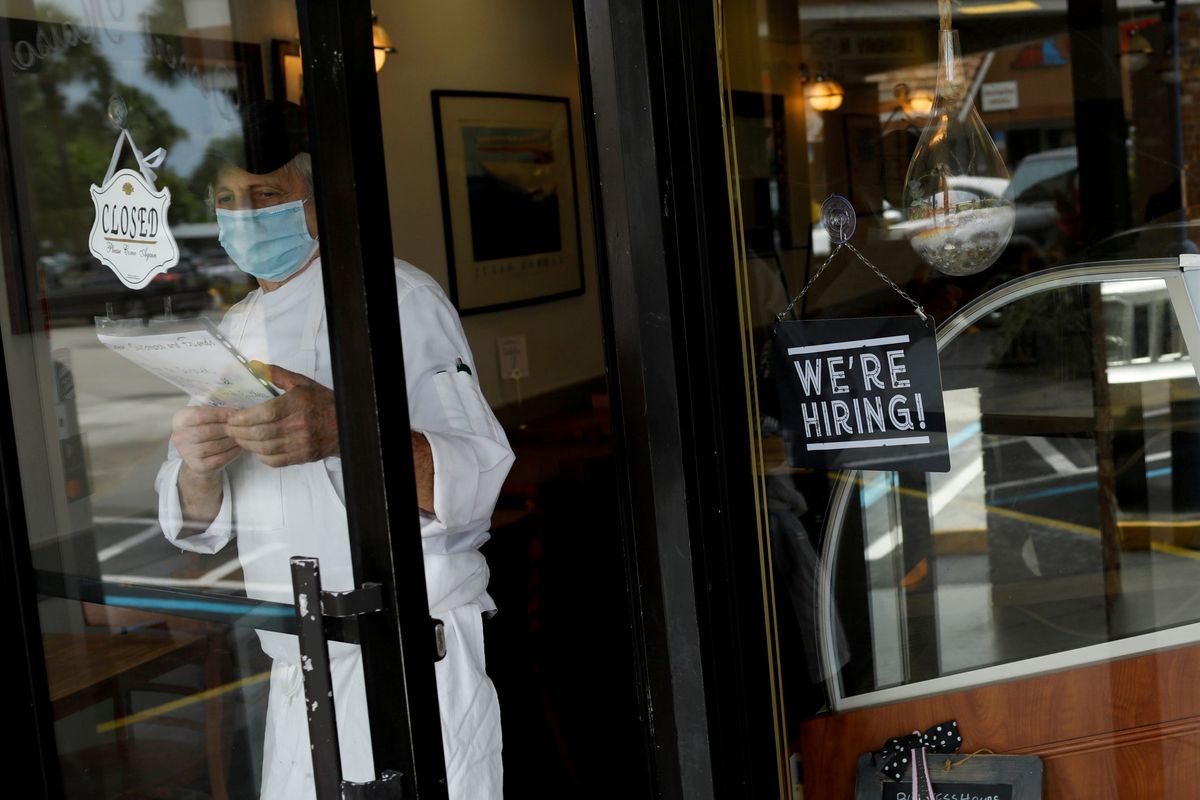Why are US governors looking to end unemployment benefits early?

A few minutes every morning is all you need.
Stay up to date on the world's Headlines and Human Stories. It's fun, it's factual, it's fluff-free.
As it currently stands, residents in over 37 states can potentially make more money through unemployment benefits than going back to the job they had before the pandemic.
- The COVID-19 pandemic has been and continues to be a century defining health crisis that has taken millions of lives.
- Along the way, millions of jobs have also been lost around the world.
- Since March of 2020, the ILO estimates global working hours lost that year were equivalent to 255 million full-time jobs, leading to US$3.7 trillion in lost labor income worldwide.
- The United States though, has been affected by the incredibly high job losses in an interesting way.
- As it currently stands, residents in over 37 states can potentially make more money through unemployment benefits than going back to the job they had before the pandemic.
- So now, some of those benefits may be soon coming to an end for millions of Americans as early as June 12th.
What are the unemployment benefits?
- 24 Republican-led states, including Idaho, Mississippi and Florida, are seeking to end their unemployment benefits boost before the national expiration date, September 6, 2021.
- The boost these governors are wanting to end are part of the American Rescue Plan that was created by the Biden administration back in January of this year.
- The American Rescue Plan provided unemployment benefits until September 6 with a weekly additional benefit of US$300 on top of the regular US$400 benefit.
- In normal times, state unemployment benefits replace less than half of the prior wages of unemployed Americans, looking to encourage individuals to find a new job and provide some financial support until they do.
So, are Americans going back to work?
- Republican Governors such as Idaho’s Brad Little, have expressed why they believe they need to end the unemployment boost.
- “Employers are telling me one of the big reasons they cannot recruit and retain some workers is because those employees are receiving more on unemployment than they would while working,” Governor Little said in a statement earlier this month. “My decision is based on a fundamental conservative principle — we do not want people on unemployment. We want people working.”
- Many of these 24 state leaders feel the same way about these unemployment benefits. They feel as if the reason why the US is experiencing a historic job loss is due to unemployment benefits providing better wages than jobs in their states.
- But, while these state leaders are looking to end the unemployment benefits earlier, economists are saying that the unemployment rate is at a 14-month low.
- According to the US Labour Department, in early May, the number of Americans applying for the first time unemployment fell to its lowest point since March of 2020. This means that many Americans are getting back to work after being unemployed.
- But, even though national averages are looking better, this doesn’t mean that individual states are doing better.
Critics of ending unemployment benefits early
- Researchers at JPMorgan Chase indicate that these decisions by some governors to end the unemployment benefits seem to be tied to politics instead of economics.
- “Signs of labor market tightness when looking at unemployment rates, earnings growth, and participation rates don’t appear to be driving states to end these programs early," Daniel Silver, an economist at JPMorgan, wrote last Wednesday. “It therefore looks like politics, rather than economics, is driving decisions regarding the early ends to these programs."
- In other words, Silver is saying some of these states have not actually recovered as much as the national average, and that ending these unemployment benefits are based on a political agenda.
- Andrew Stettner, senior fellow for The Century Foundation, writes that cutting the benefits early fails to recognize that the money typically provided by the unemployment benefits is spent by the workers, meaning it goes right back into the local economy and supports small businesses.
- “Any benefits that the state’s businesses might receive from some of these workers, in terms of faster ability to hire them in the short term, would be overwhelmed by the loss of unemployment debit card swipes hitting the cash registers of those same businesses,” Stettner writes.
Have a tip or story? Get in touch with our reporters at tips@themilsource.com




Comments ()